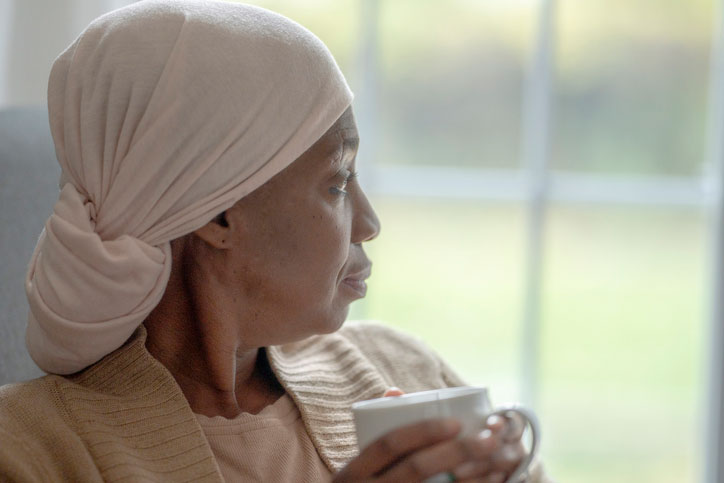Written by Scott Wilson

Many social workers deal with circumstances and afflictions that only come to small parts of the population. Not everyone is an immigrant, or suffers from substance use disorders, or mental health issues, or faces extreme poverty. For many people, social work is something abstract and distant.
But there is one thing in life that everyone comes to eventually, naturally, and inevitably. And there, near the end, everyone from any race, creed, or social stratus benefits from compassionate, kind, experts to help them manage the unmanageable.
Hospice and palliative care social workers take on that universal calling to ease the sometimes painful nature of passing for both patients and their families. They bring light, dignity, and comfort to an inherently uncomfortable process.
How are the Hospice and Palliative Care Social Worker Roles Defined?
Palliative care is a field of medicine focused on easing pain and symptoms of serious, often terminal, illness. The goal is to improve the quality of life for individuals going through long-term, painful health issues.
Hospice describes the uses of palliative care and related preparations with patients for whom no full recovery is possible. The major difference is that treatment may continue during palliative care, while it is withdrawn for patients in hospice. In either case, these can be utterly shattering events for the people experiencing them as well as their loved ones.
Naturally, there are many considerations outside the strict realm of medicine that go with life-changing healthcare events. The mental and systemic challenges can be as overwhelming as the physical.
That’s where hospice and palliative care social workers join the team.
What Does a Hospice Social Worker Do in New York?
Social work roles in hospice care have a tough two-track responsibility:
- Conducting intensive intake assessments to provide a picture of client needs and abilities
- Easing the final weeks, days, and hours of terminally-ill patients and ensuring their wishes are respected and comfort assured even as they fade
This often involves significant coordination with interdisciplinary care teams. For doctors, nurses, and even hospice social workers themselves, working with pain and death can become second nature. For patients and their families, it’s a new and unwelcome experience. Palliative care social workers are the buffer and translators in the system.
Social workers must remain empathetic and in touch with the terrible emotional toll that comes with end-of-life considerations. In some sense, they have to take themselves into the zone where pain and loss is fresh and sharp to connect with patients and their families.

These social workers can work miracles even by performing the simplest acts of care:
- Coaching family members in caring for their loved one
- Helping to develop care plans and goals, including recommending resources and making connections with assistance organizations
- Serving as a liaison between patients, families, and medical care teams, facilitating meetings and using patient interview results to brief providers
- Clarifying palliative and end-of-life care goals and capabilities
- Explaining funeral costs and the options and processes of cremation or burial
- Dealing with the paperwork associated with wrapping up the affairs of the deceased, including advising families on wills, death certificates, and finances
- Surfacing considerations that grieving family members may not immediately think of themselves, such as the need for locating important documents, assigning powers of attorney, or anticipating unexpected expenses
- Offering psychosocial support both through treatment and during the bereavement following a loss
While the comfort social workers bring in the wake of loss is important, it can be equally important to prepare families for that loss ahead of time. In fact, the line is thin between hospice and palliative care workers precisely because it’s often difficult to predict the treatment and recovery process.
Because illness and death don’t operate on a human clock, these are roles that may require working at any time, day or night. On-call rotations and availability by phone are often requirements.
Getting the Education Needed To Fill a Hospice and Palliative Care Social Worker Role
This role is packed with clinical counseling work, so it’s almost always a job for fully licensed clinical social workers (LCSWs) in New York, or LMSWs (Licensed Master Social Workers) working under LCSW supervision.
Either way, it requires earning a Master of Social Work (MSW) degree to get there.
The best preparation, though, is through specialized MSW programs that focus on the unique set of skills and preparation that palliative care and hospice social work practice demand. You can find these through options such as a Master of Social Work in Gerontology and Palliative Care, or Master of Social Work in Health and Palliative Care.
Of course, this is a close match to other common practice areas, so a concentration in gerontology or aging, or in health care social work, is also likely to touch on many of the same subjects.
Those will include classes in areas like:
- Health Care in Social Work
- Coping With Loss
- Ethical Issues in Pain Management
You’ll also find educational certificates like a Certificate in Hospice and Palliative Care offered by some New York schools of social work. These are often accepted as continuing education hours for purposes of maintaining licensure, and can help you refocus your skillset on palliative care and hospice if your original MSW specialization was in another field. As you’ll also see, they can be important in qualifying for professional certifications in the field.
Certifications for Social Workers in Hospice Care and Palliative Treatment Roles

Professional certification from the National Associate of Social Workers (NASW) helps to establish your qualifications and expertise in this sensitive social work specialization. The organization offers the Advanced Certified Hospice and Palliative Social Worker (ACHP-SW) credential for licensed social workers in this field.
Created with the support of the National Hospice and Palliative Care Organization, the cert requires:
- A CSWE-accredited MSW degree
- At least 20 continuing education units in hospice or palliative care subjects
- At least two years of supervised experience in hospice and palliative care work
- A current professional license to practice as a social worker
- Compliance with the NASW Code of Ethics and Standards for End of Life Care
NASW also offers a BSW-level certification, the CHP-SW, but since there are no BSW licenses in New York, it is not a common credential here.
That makes the ACHP-SW available to both LMSW and LCSW social workers in New York, where it is highly respected as a sign of expertise in working with interdisciplinary care teams to provide support for psychosocial needs of end-of-life care.
Many New York Healthcare Organizations and Nonprofits Hire Hospice and Palliative Care Social Workers
Hospice and palliative care social work roles are most commonly found at hospitals, nursing homes, and similar healthcare facilities.
There are also hospice organizations that focus on delivering comfort and relief to patients who choose to remain in their homes through the final difficult months of life.
Unlike other social worker roles, these are primarily found at nonprofit and for-profit organizations, with relatively few government positions in the specialty.
There is a lot of crossover between these roles and both healthcare social work and geriatric social work positions. Just as in other healthcare related roles, that can lead to sub-specializations in the field… some palliative care social workers may focus entirely on oncology patients, or in pediatrics.
For all the grim associations people have with death, dying, and long-term illness, hospice and palliative care social work can be a rewarding and uplifting experience.
No matter what sort of patients you end up working with in this field, it’s a real privilege and a serious responsibility to help them through their final challenges. It may be the last gift society can offer them, and social workers are the right professionals to deliver it.
